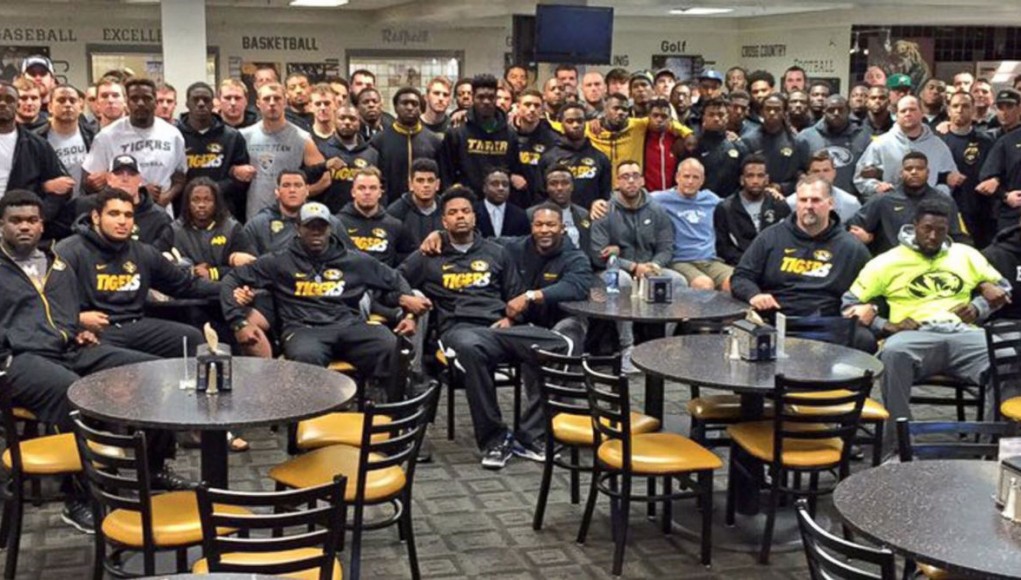If we are watching the University of Missouri closely, we are seeing what justice looks like.
We are seeing what the Honorable Minister Louis Farrakhan might say is the “or else” or portion of his “Justice or Else” movement.
We are seeing unity personified.
On Nov. 2, Jonathan Butler, a graduate student at the University of Missouri, announced that he was initiating a hunger strike until the until the president of the University of Missouri system president resigned and changes were made in the manner in which the university handled racial issues.
Butler was protesting the university’s indifference toward the growing racial tensions on the campus, in general, and an increase of hate crimes committed against black students on the campus.
Butler’s actions and announcement were the culmination of many other strategic moves and demands by Concerned Student 1950 — a group of black students spearheaded by Butler — so named to acknowledge the year the first black student was accepted into the University of Missouri.
Concerned Student 1950 and Butler could have been a cautionary tale for other would-be young black revolutionaries seeking to topple unjust establishments.
They could have been persuaded by the cries from weary civil rights veterans that their demands were too lofty and too broad to be taken seriously.
Their silence could have been bought with the promise of scholarships and future lucrative careers, or coerced with the same.
They could have become discouraged by the lengthy and the well-documented list of revolutionaries that have gone before them who have failed.
But, no such thing happened to Concerned Student 1950 and Butler. They forged ahead, more concerned for the common good, than their own. More determined to achieve justice than to apologize for their skin color.
And as a result of their diligence and persistence, there was in essence, a unified black voice on the University of Missouri campus — from football players to grad students — demanding to be heard.
And the world listened. Professors walked out of classes in solidarity. U.S. senators scolded the university administration. And the academic and athletic departments of the school officially endorsed the young revolutionaries and their actions.
The university president heard the unified disgust and angst and has resigned.
So what was supposed to be a cautionary tale of how young revolutionaries are crushed by a powerful establishment, has turned into a legendary folk tale before our eyes — a John Henry-sized tale to inspire us all.
This is what happens when we all speak as one.



































